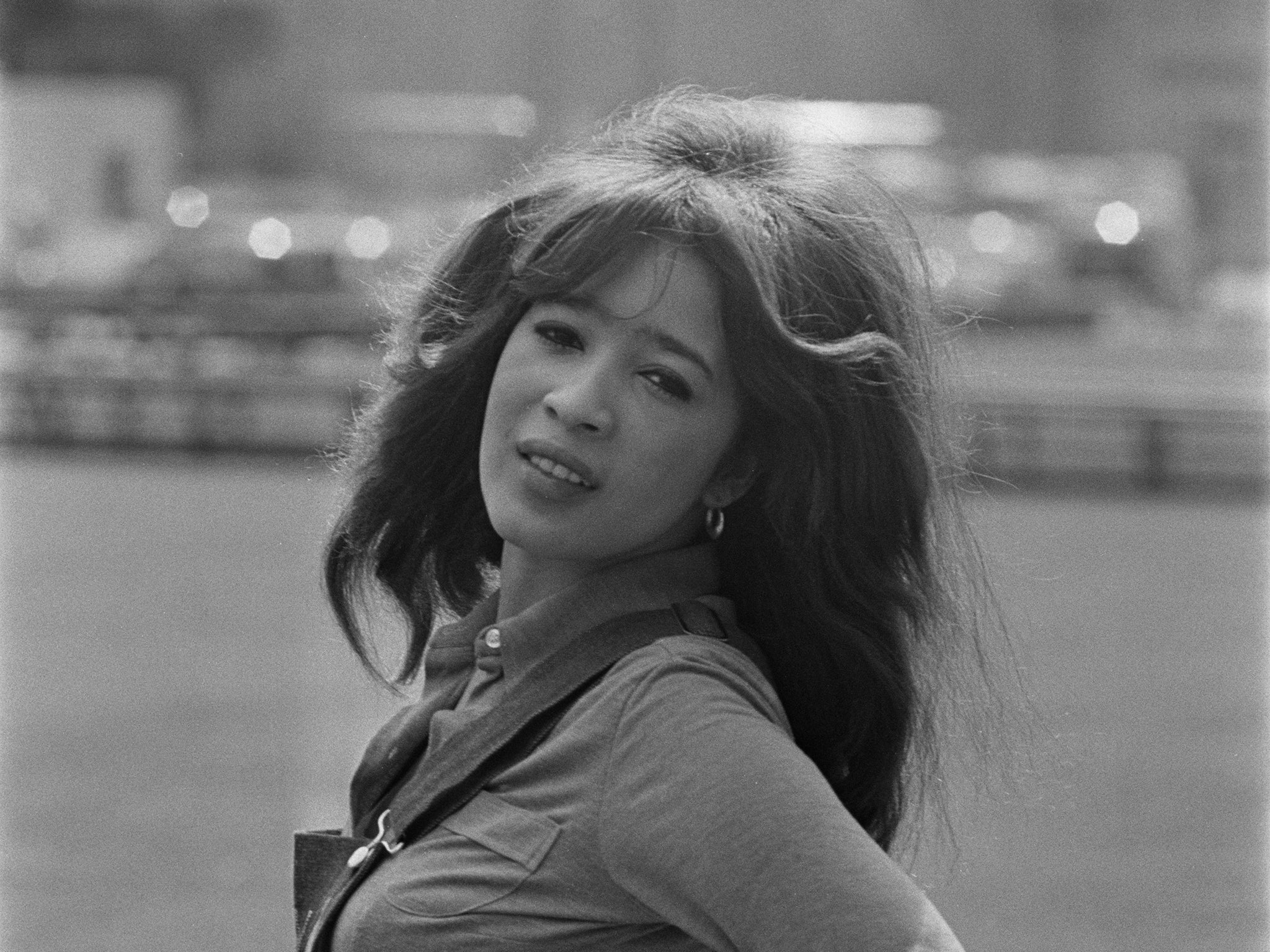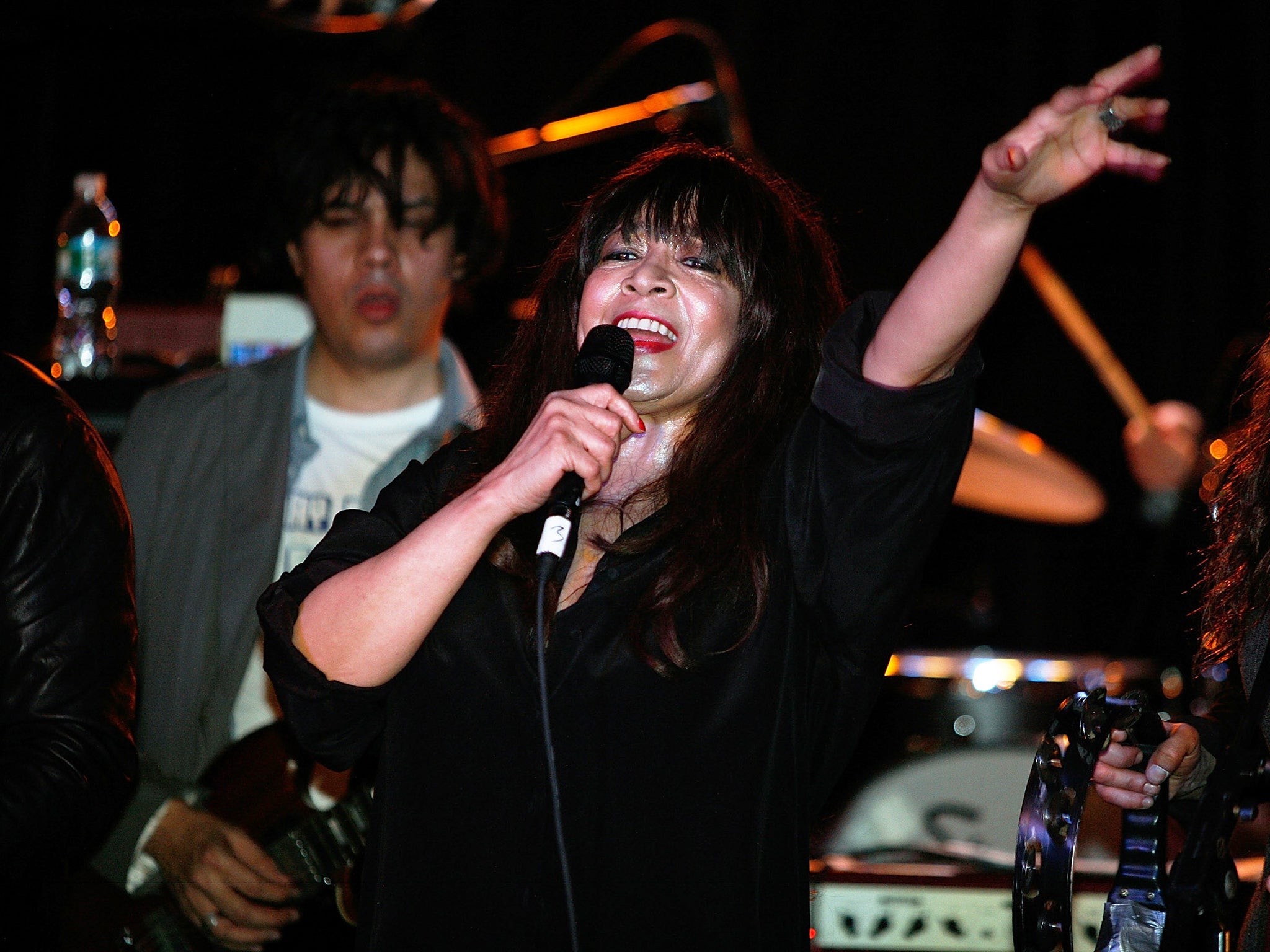The Independent's journalism is supported by our readers. When you purchase through links on our site, we may earn commission.
‘The voice of all voices’: Ronnie Spector was music’s great survivor
The Ronettes singer, who recorded the immortal ‘Be My Baby’ and survived an abusive marriage to producer Phil Spector, has died at 78. Her voice, writes Kevin E G Perry, will live forever.


Ronnie Spector has died, at the age of 78, but her voice will go on being heard for as long as we have recorded music and a way to play it. The lead singer of The Ronettes, she lent her unforgettable vibrato to their immortal 1963 single “Be My Baby” before marrying the song’s producer, Phil Spector. He was a cruel, macabre and jealous abuser, keeping her locked away from the world and forbidding her from performing. After escaping in 1972, Ronnie was encouraged by many of the musical icons she’d influenced and inspired to return to singing. “So that’s what I did,” she told Vice in 2016. “I went right back, because I had people like Keith Richards and John Lennon and Billy Joel and David Bowie – even Springsteen – telling me ‘Ronnie, you have the voice of all voices.’”
Born Veronica Yvette Bennett on 10 August 1943 in New York’s Spanish Harlem, Spector grew up surrounded by family and music. Her mother had six sisters, all hairdressers, who years later would help create and maintain The Ronettes’ signature towering beehives. On Saturday nights, their extended family would gather at Spector’s grandmother’s house, and the children would sing. “By the time I was eight,” Spector recalled in her 1990 memoir Be My Baby. “I was already working up whole numbers for our family’s little weekend shows.”
As a teenager, Spector formed a group with her sister Estelle Bennett and their cousin Nedra Talley. First known as The Darling Sisters, they were briefly renamed Ronnie and the Relatives before settling on The Ronettes. After they released a pair of singles that failed to chart, Estelle Bennett phoned producer Phil Spector, who had enjoyed success with fellow girl group The Crystals, and persuaded him to give them an audition. When the Ronettes began singing “Why Do Fools Fall in Love” for him, the producer jumped up from his seat at the piano and shouted: “That’s it! That’s it! That’s the voice I’ve been looking for!”
The Ronettes signed to Philles Records in March 1963, and in July travelled to Gold Star Studios in Hollywood to record “Be My Baby”. A quintessential example of Phil Spector’s dense and dramatic “Wall of Sound” production style, the song is widely considered among the finest ever recorded. After it was released that August, Beach Boys founder Brian Wilson heard the song while out driving. “I had to pull over to the side of the road – it blew my mind,” Wilson told The New York Times in 2013. “It’s the greatest record ever produced. No one will ever top that one.”
Riding high on the success of “Be My Baby”, The Ronettes released a string of hit follow-ups including “Baby, I Love You” and “Walking in the Rain”. In January 1964 they flew to London to start their first UK tour, with The Rolling Stones as their support act. Spector had a brief romance with guitarist Keith Richards, who recalled their time together in his 2010 memoir Life: “The first time I ever went to heaven was when I awoke with Ronnie (later Spector!) Bennett asleep with a smile on her face. We were kids. It doesn’t get any better than that.”
For Spector, it was about to get much worse. She had been having an on-off affair with Phil Spector since they met in 1963, not realising he was married, and after the producer divorced his wife Annette Merar in 1965, he bought a sprawling Beverly Hills mansion for the couple to live in. They married on 14 April 1968, and the following morning Spector awoke to the sound of workmen constructing a barbed-wire fence around their estate. Soon, there were bars on all the windows, monitoring intercoms installed in all the rooms and 10-foot tall electrified gates out front. The only thing Ronnie was allowed to watch on television was Mission: Impossible. On the rare occasions Ronnie was allowed to leave the compound without her husband, she had to be accompanied by a life-size dummy of him, complete with a cigarette dangling from its lip, which would sit beside her in the car. In the mansion’s basement, Phil installed a solid gold coffin with a glass top, threatening Ronnie that if she ever left him he would have her killed and display her corpse there.
After withstanding years of this grotesque mental and physical torment, Ronnie finally managed to break free in June 1972 and fled into the night barefoot, Phil having taken all her shoes. Their divorce dragged on until 1974, at which point Ronnie forfeited all future record earnings, along with custody of their adopted children, after Phil threatened to hire a hitman to kill her.

Finally clear of her ex-husband’s control, Spector found her way back into the music business without him. In 1976, Billy Joel released “Say Goodbye to Hollywood”, a song directly inspired by “Be My Baby” on which he mimicked her famous voice. She returned the compliment by covering his track with Bruce Springsteen’s E Street Band, and had a hit with it the following year. In the Eighties, she released a pair of solo albums Siren and Unfinished Business. After a two-decade hiatus, she returned to recording in 2006 with her well-titled album Last of the Rock Stars, which features guest appearances from friends and fans including Keith Richards, Patti Smith and Nick Zinner of the Yeah Yeah Yeahs. Her final album, 2016’s English Heart, brought her musical journey full circle as she covered songs by the British artists she had first met and toured with in the Sixties.

Asked to conduct The Ronettes into the Rock & Roll Hall of Fame in 2007, Keith Richards found himself transported back to that heady era. He recalled being backstage one night on that tour in 1964 and overhearing voices from their dressing room. “As I go down the stairwell, I hear this beautiful little chant set up by Nedra and Estelle, and I realise I’m listening to The Ronettes, and then that pure, pure voice over the top singing ‘Be My Baby’,” said Richards, offering the perfect riposte to anyone who would dare downplay the significance of Ronnie Spector. “I got a command performance all to myself, and I realised, despite Jack Nitzsche’s beautiful arrangements, that they could sing their way right through a ‘Wall of Sound’. They didn’t need anything.”
Enjoy unlimited access to 100 million ad-free songs and podcasts with Amazon Music
Sign up now for a 30-day free trial. Terms apply.
ADVERTISEMENT. If you sign up to this service we will earn commission. This revenue helps to fund journalism across The Independent.
Enjoy unlimited access to 100 million ad-free songs and podcasts with Amazon Music
Sign up now for a 30-day free trial. Terms apply.
ADVERTISEMENT. If you sign up to this service we will earn commission. This revenue helps to fund journalism across The Independent.
Join our commenting forum
Join thought-provoking conversations, follow other Independent readers and see their replies
Comments


Bookmark popover
Removed from bookmarks